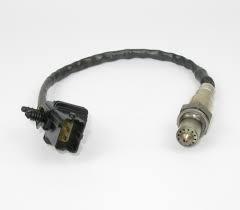When it comes to engine performance, precision is key. That's where the Bosch LSU 4.2 Lambda Sensor comes into play. This innovative sensor is designed to measure the air-fuel ratio in an engine's exhaust system, providing crucial data that helps optimize fuel efficiency and reduce harmful emissions. In this blog post, we'll explore the importance of the Bosch LSU 4.2 Lambda Sensor and how it works to enhance engine performance.
What is the Bosch LSU 4.2 Lambda Sensor?
The Bosch LSU 4.2 Lambda Sensor is an advanced sensor that measures the oxygen content in an engine's exhaust gases. It is commonly used in automotive applications to monitor the air-fuel ratio, which is the ratio of air to fuel in the combustion process. This sensor is a vital component of the engine management system, providing real-time feedback to ensure optimal engine performance.
How does the Bosch LSU 4.2 Lambda Sensor work?
The Bosch LSU 4.2 Lambda Sensor operates based on the principle of a chemical reaction. It consists of a ceramic sensing element coated with a special material that reacts to the presence of oxygen. When the sensor is exposed to the exhaust gases, the oxygen in the gases diffuses through the ceramic element, causing a change in voltage across the sensor's electrodes.
This change in voltage is then converted into a signal that is sent to the engine control unit (ECU). The ECU uses this information to adjust the air-fuel mixture in real-time, ensuring that the engine is running at its optimal efficiency. By continuously monitoring the air-fuel ratio, the Bosch LSU 4.2 Lambda Sensor helps to reduce fuel consumption and minimize harmful emissions.
Why is the Bosch LSU 4.2 Lambda Sensor important?
The Bosch LSU 4.2 Lambda Sensor plays a crucial role in optimizing engine performance and reducing environmental impact. Here are a few key reasons why this sensor is important:
- Improved fuel efficiency: By providing accurate feedback on the air-fuel ratio, the sensor helps the engine control unit make precise adjustments to optimize fuel consumption. This can result in improved fuel efficiency and cost savings for vehicle owners.
- Reduced emissions: The sensor's ability to monitor the air-fuel ratio allows for better control over the combustion process, leading to reduced emissions of harmful pollutants such as carbon monoxide and nitrogen oxides.
- Enhanced engine performance: With the Bosch LSU 4.2 Lambda Sensor, the engine management system can maintain the ideal air-fuel mixture, resulting in smoother operation, improved power delivery, and overall enhanced engine performance.
Conclusion
The Bosch LSU 4.2 Lambda Sensor is a critical component for optimizing engine performance and reducing environmental impact. By providing real-time feedback on the air-fuel ratio, this sensor helps the engine control unit make precise adjustments, resulting in improved fuel efficiency, reduced emissions, and enhanced engine performance. Whether you're a car enthusiast or an automotive engineer, understanding the importance of the Bosch LSU 4.2 Lambda Sensor is key to unlocking the full potential of any engine.

